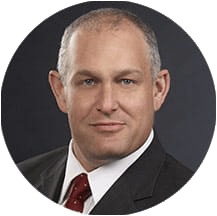I was recently reminded of how essential an advocate is to any immigration case. Immigration attorneys do much more than simply fill out paperwork. An experienced, confident and optimistic attorney can be the difference between an immigration benefit being approved or denied.
This past year, I represented John and Maria in obtaining permanent residency for Maria. (Names are changed to protect the identities of these clients.) John is a U.S. citizen, and he petitioned Maria for a fiancée visa to come to the United States from Colombia. Then, after getting married, Maria applied to adjust status and become a U.S. permanent resident. John and Maria attended an adjustment interview with U.S. Citizenship & Immigration Services (“USCIS”). Everything went well at the interview, and Maria seemed to be on her way to approval. But there was one last thing to do: the medical exam, a requirement for all who are seeking admission into the United States.
These medical exams are usually routine and uneventful. John and Maria visited a doctor authorized by USCIS who performed and completed the exam, which included administering required vaccines. We submitted the medical exam form to USCIS and waited for the official approval.
However, instead of the approval, USCIS sent us a letter advising us the evidence submitted was “insufficient” to show Maria had the correct vaccinations. That was as specific as USCIS got. The letter also suggested to Maria she could request a waiver of grounds of inadmissibility, if she could show hardship to John if Maria were to be denied adjustment.
I knew this waiver USCIS offered would eventually bring Maria to permanent resident status. It was something that worked for many of my other clients. But, I also knew it would cost thousands more in government fees and attorney fees, and cost more time and effort to gather and present additional evidence to show possible hardship to Juan. More importantly, I also knew this waiver of inadmissibility was completely unnecessary for Maria. Maria did receive the required vaccines, and she not only was admissible to the United States, but deserving of the same. Her case should’ve been approved at the interview!
Instead of requesting a waiver, John, Maria, and I decided we were going to fight for Maria’s case as it was, and prove to USCIS she already met all the requirements for adjustment. John and Maria wrote declarations to give more details about what happened the day of the medical exam and vaccines. I researched and wrote persuasive legal arguments to show Maria and her doctor followed all of USCIS’s rules perfectly, and to clearly explain why USCIS’s instructions were “obstructively vague” and why “the purported inadmissibility does not apply to” Maria.
Not requesting a waiver might be considered a risk. If USCIS decided Maria was still inadmissible, we did not know if USCIS would offer another chance to request the waiver. USCIS could simply deny Maria’s adjustment. But we were sure calling out USCIS for overcomplicating and delaying Maria’s case would be a strong, successful response. We did not want to back down or concede to USCIS without a good reason.
The advocacy paid off. Nine days after receiving our response, USCIS approved Maria for permanent residency.
This happy ending goes to show even seemingly simple cases can face tricky problems, and you should not go up against USCIS or another immigration agency alone. You should have an attorney by your side, with the skills and passion it takes to get the job done and help you reach your goals.
The attorneys at Wilner & O’Reilly have the expertise you need to achieve success. We offer free consultations by phone or by video at our office in Orange, Riverside, Pasadena, Fresno, Sacramento, San Bruno, and San Diego, California; Salt Lake City and Orem, Utah; and Boise, Idaho.
ABOUT THIS AUTHOR (S)

J.J. Despain is the managing attorney in Boise for W&O’. He is admitted to the Colorado State Bar and practices mostly employment-based and family-based immigration law. J.J. graduated from Brigham Young University, where he earned a Bachelor of Arts in communications with an emphasis in print journalism. He spent two years as an opinions editor, sports editor, and web editor for the campus newspaper, The Daily Universe. J.J. also earned minors in both Spanish and political science. After his undergraduate studies, J.J. attended law school at the University of Iowa College of Law. In Iowa, J.J. was the president of the student chapter of the J. Reuben Clark Law Society, a managing editor of the Iowa Law Review, a judicial clerk for the Honorable Stephanie M. Rose of the U.S. District Court for the Southern District of Iowa and was involved with the Latino Law Students Association and Sports Law Society.
RICHARD M. WILNER – FOUNDING PARTNER

Richard M. Wilner is a founding member of Wilner & O’Reilly, APLC and is Board Certified by the State Bar of California as a Specialist in Immigration and Nationality Law. He is admitted to practice law in the State of California and before the U.S. District Courts for the Central, Northern and Southern Districts of California, the Northern District of Texas, the U.S. Court of Appeals for the Ninth Circuit and the U.S. Supreme Court.Mr. Wilner has received the coveted Martindale-Hubbell AV Rating, the highest legal and ethical rating that one can receive from one’s peers in the legal community. Similarly, he has been awarded the title of Super Lawyer from 2007 to the present. He is best known for his work in advising Fortune 500 companies, middle and small market businesses, entrepreneurs and foreign nationals of extraordinary ability in athletics, arts, and sciences in the complex area of U.S. Immigration and Nationality Law.


Comments are closed.